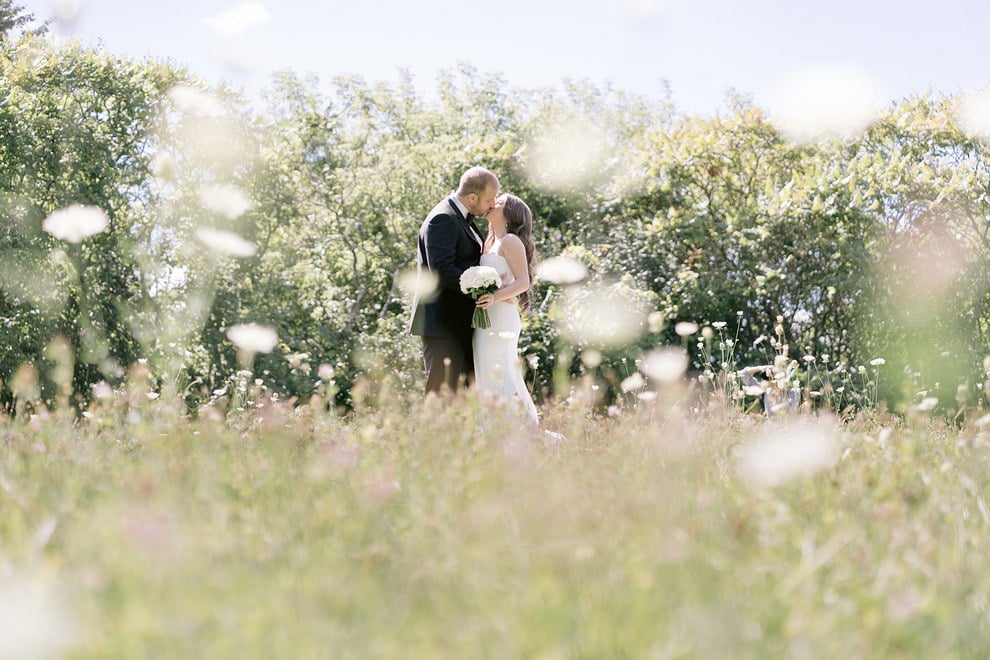Nearly Wed? How to Change Your Name in Canada After Marriage
Starting a new chapter in marriage often brings the exciting yet complex decision of whether to change your name. Welcome, nearlyweds! If you’re considering whether to adopt your partner’s surname or keep your own as a part of your identity, you’re in the right place. In Canada, changing your name after marriage is an option, not a requirement—except in Quebec, where the rules are different. Here’s how to Change Your Name in Canada After Marriage!
Photo Courtesy of Mango Studios
Things to Consider When Deciding Whether to Change Your Name
Deciding whether to change your name after you get married is a very personal choice. It might be about sticking to tradition or showing the world you’re united. Maybe it’s for making things simpler when you start a family, or maybe it’s about starting a brand new chapter together. Sometimes, what others expect might influence your decision, but remember, this is your story to write. If you’re juggling a professional name and a personal one, think of it as having the best of both worlds.
This post is here to help you navigate the process of changing your name if you decide that’s the route you’re going to take.
Legal Requirements for Changing your name after Marriage in Canada
In Canada, the legal requirements for changing your name after marriage can vary depending on the province or territory in which you reside. Generally, there are two ways to change your name after marriage: (1) assuming your spouse’s last name (informally known as name by marriage); or (2) legally changing your name through a formal process. Here is a general overview of the steps involved for both methods, but remember to check with your local provincial or territorial government for specific requirements and procedures.
1) Assuming Your Spouse’s Last Name (Name by Marriage):
- Marriage Certificate:
- Obtain your official marriage certificate from the province or territory where the marriage took place. This is often not the same document you sign on your wedding day; it’s a government-issued certificate you must apply for after the ceremony.
- Notification:
- Notify various organisations and government bodies of your name change by providing a copy of your marriage certificate.
- This typically includes updating your name with the Social Insurance Number (SIN) registry, driver’s licence, health card, bank accounts, credit cards, passports, and employers.
- Documentation:
- Most organizations will require you to fill out a form and submit it along with a copy of your marriage certificate to change your name on your records.
2) Legally Changing Your Name:
If you want to make a name change that is not simply assuming your spouse’s last name, such as creating a hyphenated name or a new last name altogether, you may need to undergo a legal name change process. Here are the general steps:
- Application:
- Apply for a legal name change through ServiceOntario or equivalent in your province or territory.
- Complete the necessary forms and provide the required documentation, which may include your birth certificate, marriage certificate, and identification.
- Notification:
- Once the legal name change is approved, you will receive a legal name change certificate or amended birth certificate with your new name.
- Use this document to update your name with all government agencies, financial institutions, and other organisations as mentioned earlier.
Keep in mind Provincial/Territorial Variations:
- Each province/territory may have its own forms, fees, and specific processes. For instance, in Ontario, you would deal with Service Ontario, while in British Columbia, it would be the Vital Statistics Agency.
- In Quebec, if you wish to take your spouse’s surname, you typically continue to use your birth name for legal purposes, but you may use your spouse’s surname socially.
It’s important to check with the government of the province or territory where you live for detailed instructions and requirements. You can often find this information and necessary forms on their official websites or by contacting Service Ontario (or the equivalent in your province or territory).
Remember, changing your name does not alter the legal name on your birth certificate in most cases, except in Quebec under certain conditions. Your birth certificate will still reflect your name at birth, but your marriage certificate and legal change of name certificate (if applicable) serve as legal proof of your name change.
You May Also Be Interested In
Top 10 Birthday Party Mistakes and How to Avoid Them
What to Wear to a Wedding: The Ultimate Guide for Guests
How to find cheap and affordable wedding venues
How much does it cost and what do I need?
The cost to assume your spouse’s last name or change your name after marriage in Canada and the documents you need to bring can vary depending on the province or territory.
For Ontario:
- Cost:
- Assuming your married name: Free (keep in mind, however, there is a cost to obtain your marriage certificate which is currently $15)
- Formal name change within 90 days of your marriage: Free
- Formal name change after 90 days of your marriage: $25
What happens to your Original Last Name?
In Canada, after marriage, you have a few options regarding your original last name:
- Keep Your Maiden Name: You can choose to retain your maiden name and not make any changes to your legal documents.
- Use Both Names: Some individuals choose to use their married name in their personal life while maintaining their maiden name professionally.
- Hyphenate: You can hyphenate your maiden name with your spouse’s name to create a double-barrelled surname.
- Change Documents: If you decide to adopt your spouse’s name or hyphenate, you will need to update your legal documents, such as your driver’s licence, passport, Social Insurance Number, bank accounts, and other official identification.
- Revert to Maiden Name: If you’ve already changed your name but decide later that you want to revert to your maiden name, you can do so, but you’ll need to update all your legal documents again.
Remember, the choice is personal and should be made based on what feels right for you and fits your life circumstances. Always ensure that your legal documents reflect the name you use to avoid any issues with identification or when accessing services.
Social Security and Banking Considerations
Whether you’ve decided to assume your spouse’s last name or have legally changed your name, remember to consider the following for social security and banking:
Social Security (Social Insurance Number – SIN):
- Update your SIN at a Service Canada office.
- Bring your marriage certificate and current SIN card or confirmation letter.
- No fee is required for the update.
- Notify your employer to ensure correct records for tax purposes.
Banking:
- Inform your bank of the name change.
- Provide your marriage certificate and updated government-issued ID.
- Request new bank cards and cheques.
- Update automatic payments and direct deposits to reflect your new name.
- Check with credit bureaus to ensure your credit file reflects the name change.
Photo Courtesy of Simkova Studios
Conclusion
The process of assuming your spouse’s name or changing your name after marriage in Canada is about simplicity and personal choice, with provincial nuances adding to the variety of options available. When changing your name on your passport, keep in mind that any honeymoon travel plans you’ve booked under your previous name will also need to be amended to match the name on your passport. Be sure to look into this well in advance of your travel to give yourself buffer time for any required changes.
Remember, changing your name is a deeply personal decision that offers a range of choices as diverse as Canada’s landscape. Whether you choose to move forward with a new surname or stick to your original, the significance of this journey lies in its testament to your shared life adventure.
Frequently Asked Questions
When Should I Change My Last Name?
We’ve already booked our flights for our honeymoon. Should I update my passport before we go?
Is there a deadline for a name change after marriage?
Will the Process Be Different if I’m Hyphenating My Last Name?
Will The Process Be Different If I’m Choosing an Entirely New Last Name?
Alisha is the owner and lead event designer at Events by Whim. She has a project management background in learning and development, and 10+ years of experience planning and designing weddings and corporate events. She’s developed a proven planning process for couples who want to know how to create magic on their wedding day. She thinks in floor plans, endorses moving if you find a spider in your house, and has an oyster obsession.






If one applies to change their name they are issued a certificate bearing their new surname. Also, a birth certificate is issued bearing the new name. I know..I’ve been through the process.